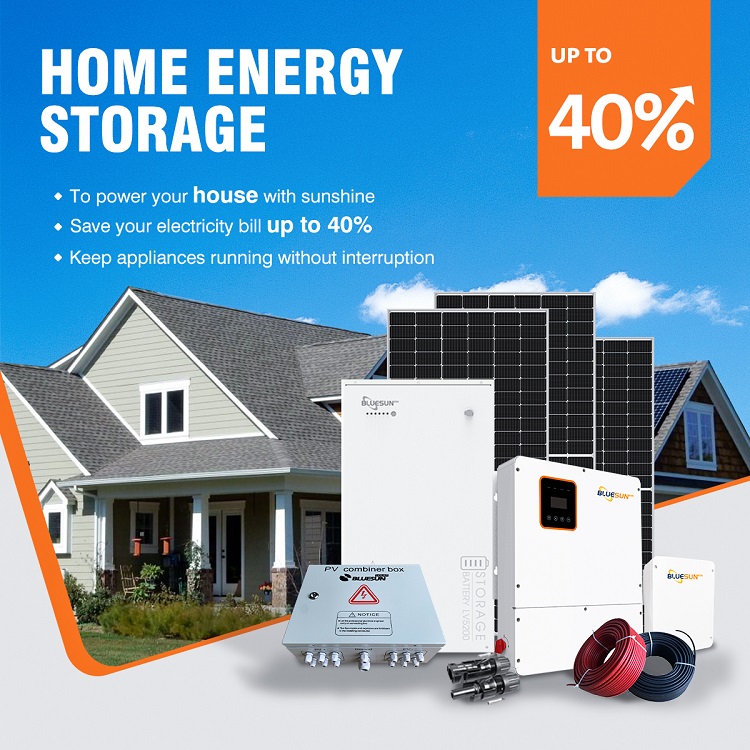REDUCING INFLATION ACT ACCELERATES U.S. ENERGY TRANSITION
U. S. President Joe Biden has signed the "Reducing Inflation Act of 2022" recently that has been passed by the U.S. House and Senate. The bill addresses issues such as climate change, taxes, health care and inflation. The passage of this bill is a major development for the US energy industry.
The bill proposes spending $369.75 billion over the next decade on energy security and climate change programs. The bill would provide billions of dollars in taxes and other incentives for U.S. PV manufacturers, which would provide them with financial support to compete with PV manufactures abroad.
Made in America
To facilitate the development of U.S. photovoltaic industry, the act stipulates that manufactured goods will be considered as U.S.-made if at least 40 percent of all manufactured items used in photovoltaic projects are made in the U.S. The proportion of domestic photovoltaic projects that will start construction after 2024 will increase, and the proportion of photovoltaic projects that will start construction after 2027 will reach 55% eventually.
Incentives for consumers
The bill offers consumers a wide range of incentives to reduce their electricity bills. These include direct incentives for consumers to buy energy-efficient appliances, clean cars, and install rooftop solar systems, and invest in home energy-efficient equipment, with a large portion of the money going to low-income households and disadvantaged communities.
Home owners who receive tax deductions for clean energy and electric vehicles (EVs) can save more than $1,000 per year.
Additionally, home users who choose heat pumps and other energy-efficient appliances will receive a $14,000 direct-to-consumer rebate that can help them save $350 per year.
The bill would provide $4.3 billion to state energy offices for rebates for various home user energy upgrades under the Home Owner Managed Energy Savings (HOMES) tax rebate program. Rebates for energy retrofits of up to $8,000 per home user, or access to 80% of the cost of the project.
Nearly 7.5 million home users in the U.S. will be able to install solar systems on their roofs and receive a 30% tax credit, helping families save nearly $9,000 or $300 per year over the life of the solar system.
If You Want To Get More Information About The Solar System, Please Click The Photo
The legislation also provides for tax credits of up to $7,500 for new electric vehicles and up to $4,000 for used electric vehicles, which will help save each family $950 per year.
The U.S. government aims to provide clean energy for each family and enterprise by 2030 by installing 950 million solar panels, 120,000 wind turbines and 2,300 grid-scale energy storage systems.
The bill will allocate $9.6 billion to develop cost-effective advanced clean energy projects in rural cooperatives serving 42 million people.
Greenhouse Gas Reduction
The Reducing Inflation Act would also help reduce greenhouse gas emissions by nearly 1 billion metric tons by 2030, nearly 10 times more than any other climate legislation in the United States. The U.S. Environmental Protection Agency will oversee a $29 billion Greenhouse Gas Reduction Fund.
Investment and Production Tax Credit
The business investment tax credit has been extended to 30% for projects that have or will begin construction before the end of 2024, and the credit will apply to deploy battery storage projects independently. PV systems are also eligible for a production tax credit, which is currently $0.026/kWh for 2022 and rises as prices rise.
It will provide a new 30% investment tax credit for deploying battery storage systems independently. Pumped-storage projects are also eligible for tax credits as deploying energy storage systems independently .
The Reducing Inflation Act would also allocate $10 billion in investment tax credits, of which up to $6 billion would go to projects located outside the census tracts where coal mines closed after 1999 or coal-fired power plants decommissioned after 2009.
Under this bill, energy projects can choose to receive either an investment tax credit or a production tax credit. Independent deployment of energy storage systems is only available for investment tax credits. Investment tax credits can be used for interconnection costs of energy storage projects with installed capacity below 5MW.
The US Congress passed the $1 trillion bipartisan Infrastructure Act (Infrastructure Investment and Jobs Act) last year, which is a once-in-a-lifetime investment in improving the nation's infrastructure in US history.
The U.S. government has announced $56 million in funding recently along with a series of new initiatives to boost innovation in solar panel manufacturing and recycling, making renewable energy more competitive, improving cost-effectiveness, and creating more employment opportunities.
The U.S. Department of Energy (DOE) has announced $3.16 billion in funding earlier from President Biden's Bipartisan Infrastructure Act to expand the scale of domestic battery manufacturing, strengthen domestic supply chains and stimulate job creation. The U.S. Department of Energy will also set aside $60 million in grants to support secondary applications of batteries once used to power electric vehicles and new processes for recycling materials back into the battery supply chain.
Sample Block Quote
Praesent vestibulum congue tellus at fringilla. Curabitur vitae semper sem, eu convallis est. Cras felis nunc commodo loremous convallis vitae interdum non nisl. Maecenas ac est sit amet augue pharetra convallis nec danos.
Sample Paragraph Text
Praesent vestibulum congue tellus at fringilla. Curabitur vitae semper sem, eu convallis est. Cras felis nunc commodo eu convallis vitae interdum non nisl. Maecenas ac est sit amet augue pharetra convallis nec danos dui.
Cras suscipit quam et turpis eleifend vitae malesuada magna congue. Damus id ullamcorper neque. Sed vitae mi a mi pretium aliquet ac sed elitos. Pellentesque nulla eros accumsan quis justo at tincidunt lobortis denimes loremous. Suspendisse vestibulum lectus in lectus volutpat, ut dapibus purus pulvinar. Vestibulum sit amet auctor ipsum.






























